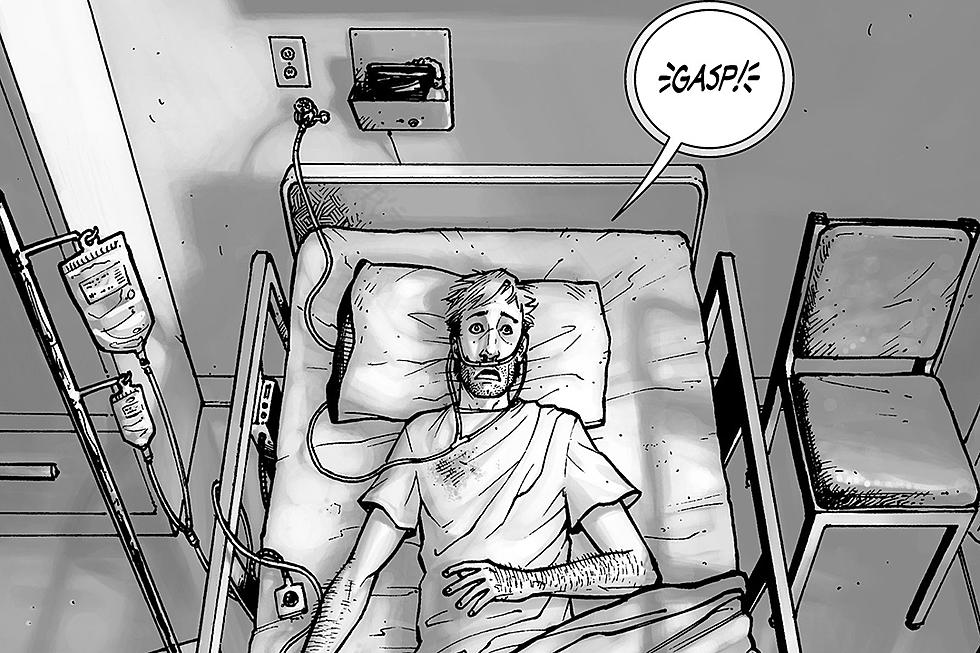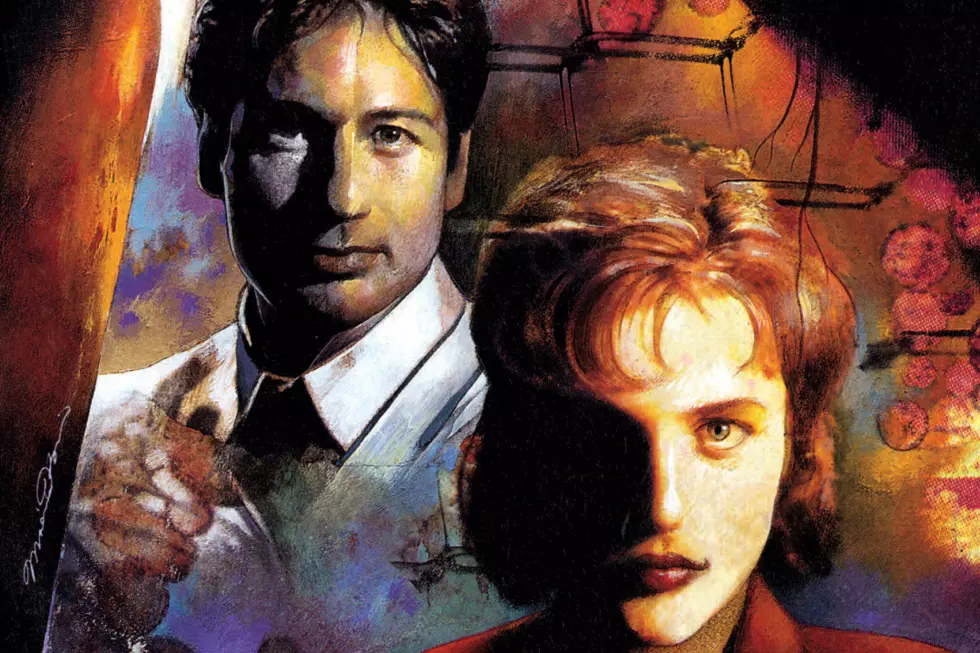
The X-Files Cold Cases #6: ‘Donor’
From 1995 to 1998, Topps Comics published a comics tie-in to The X-Files that featured original stories and, among other artists, some of Charlie Adlard's earliest US art. With Agents Fox Mulder and Dana Scully about to return to television, we at ComicsAlliance are revisiting this classic series, and highlighting some of the best stories it had to tell.
This week, Mulder and Scully (and we, the reader) confront disquieting existential questions about what happens after we die — not just what happens to our souls, but to the bodies we leave behind — in the form of a grisly serial murderer taking back the donated organs of a dead man.
The X-Files #23: “Donor”
Writer: John Rozum
Artist: Charles Adlard
Cover Art: Miram Kim
Original Publisher: Topps Comics
Current Publisher: IDW Publishing
The X-Files Created by Chris Carter
What makes us "us"?
Yours truly knows, typing this, that the cells in her body are constantly being replaced as they age out and break down, and that the mass I’ve ingested in the form of food has been turned into part of me, and that it comes and goes with fluctuations in diet and exercise and the simple passage of time. I know that some of my organs are replaceable or ones I can live without, and some are ones I’d soon die without. How much of that can you take away before I stop being me? And will I miss it when I’m gone?
This installment of The X-Files takes us to Maine, where a horrible series of assaults have occurred, all involving the theft of organs from still-living victims. This is in some cases, life-threatening, which makes this serial murder an FBI case. What makes this an X-File is that every stolen organ was recently donated, and all donated from the same dead man.
The wrinkle in this story is that the deceased, named Bruce, never agreed to give his vital organs away – the decision was made for him by his wife Francine, which has caused enough friction within the family that they have gone to court over it. Bruce’s family believes, strongly, that the bodies of the departed have to remain intact upon death, and Francine believes, just as strongly, that Bruce would want to do this for anyone in need of the organs in his body.
Charlie Adlard returns as artist for this story, joining by-now regular writer John Rozum to delve into a story that is extremely disturbing from the word “go.” Adlard depicts a series of bloody attacks that wouldn’t be out of place in a conventional story about serial killings – this is probably the most gruesome story in the series, with a selection of shocking images that would struggle to be put on broadcast TV.
Rozum’s script has the killer act as less a human being and more a force of nature, concerned with one rule above all others, even unto death: the deceased’s property is theirs alone, and that includes their internal organs, even if they’re in use.
The killer seems to be, and claims to be, the deceased, though at no point does he act like the deceased, terrifying even the loved ones who encounter him. The idea that the dead are hostile to the living, even when they were kind in life, is an old but terrifying idea. At least in a universe with no life after death, the dead can’t come after you – and if you change so radically upon dying, can you really be said to still be yourself?
This is made extra terrifying when the killer finally confronts Francine, and acts like she’s no less a piece of property than an internal organ, an extension of her husband’s will – and she is exactly as terrified of this as you’d expect.
Organ donation is one of those things in life that is a force for good – turning your death into a second chance for half a dozen others, who otherwise would have none? And yet, there is such an instinctive cultural rejection of the notion that it’s assumed by default, and organ donation has to be explicitly approved by the deceased or next of kin.
There's logical reasons - a world where organ donation is the default is one where there's a solid incentive for killing people who are undesirables. But more than that, there is just something about it that distresses us, that pokes at the raw nerve of asking whether our bodies are ourselves, and at what point are they no longer part of us because we’re no longer part of the world, and past that point, who do they belong to?
This story offers up no easy answers and careens towards an ending that’s tragic in more ways than one, as the true circumstances of the theft of the donated organs will never be known – at least, not to the world it takes place in. The indignity of not being remembered well, or accurately, after death, is just one more gnawing anxiety in the bundle of fears that gives the existential body horror of Donor its meat – pun unintended.
More From ComicsAlliance

![Rogues’ Gallery: Who Is The Ultimate ‘Walking Dead’ Villain? [Poll]](http://townsquare.media/site/622/files/2017/01/TWD-Vote.jpg?w=980&q=75)







